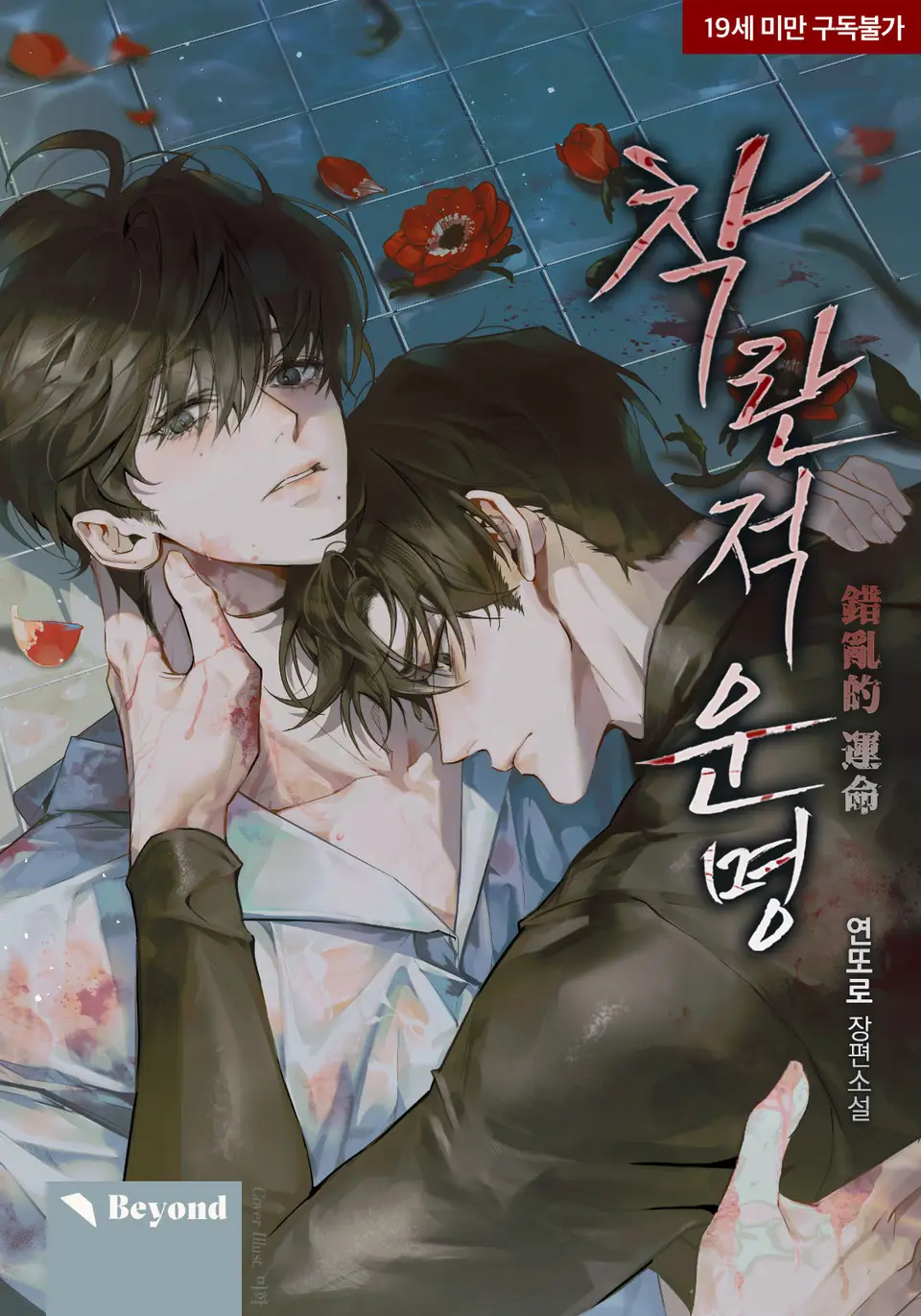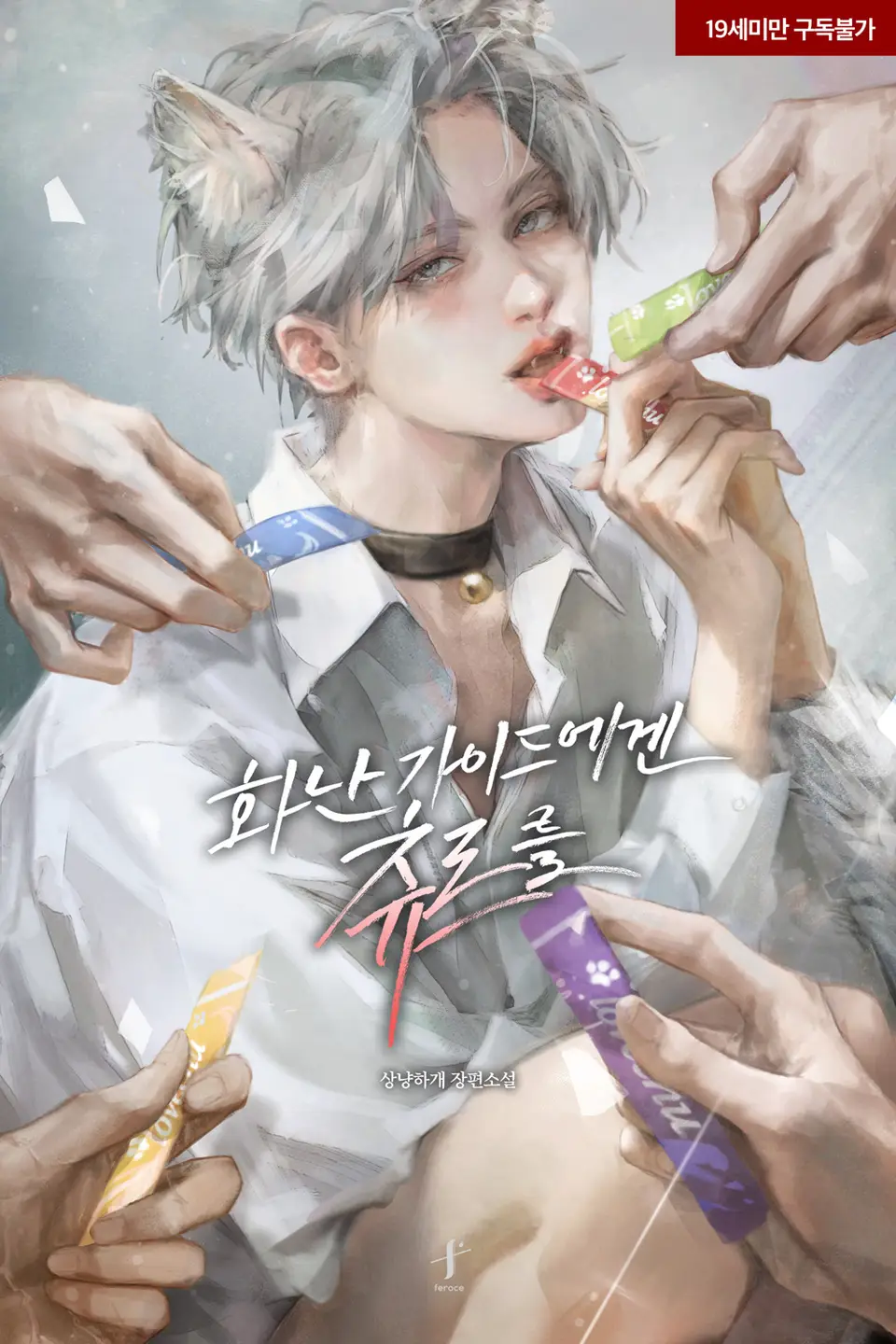Li Shanqing had a peculiar hobby since childhood: collecting affection from others.
The origin traced back to when he watched Coco as a young child. In the film, there was a part about how, after death, a person’s soul would vanish completely if forgotten by the living.
Back then, he was just a little kid, deeply worried that if he suddenly died, no one beyond his parents would remember or mourn him. So, he tried every way to get the doctors, nurses, and other children around him to promise that, after his death, they’d pray for him on the Day of the Dead.
By his teens, Li Shanqing’s thinking had matured, and as an atheist, he knew it was all fiction—once you die, there’s nothing left. But the habit had stuck, and his life during illness was so dull that any bit of fun was welcome. He embraced it and encouraged himself to keep going.
Even if the soul was a hollow fantasy, having more people remember him seemed like a harmless thing.
His relentless pestering of Zhuang Xu might have stemmed from this, though by the end, he could no longer discern how many other emotions were mixed in.
Before the New Year, Li Shanqing spent his seventeenth birthday in a hospital ward.
This time, it was a recurrence of pneumonia, pushing his health further downhill. According to the doctor, and his own understanding, his already fragile immune system had completely collapsed, becoming a lawless territory where germs could rampage freely.
For those two weeks, Li Shanqing read Dr. Zhuang’s published papers on SyncPulse sustained-release implants every night, wondering if his body was too weak to withstand the procedure. He didn’t cry, but his heart was always uneasy.
Thankfully, he fell ill after his final exams, or he’d have dragged on, unable to test, possibly delaying graduation further.
During the half-month of illness, Zhuang Xu didn’t reach out, and Li Shanqing barely contacted him. Though he sometimes played the pity card, if he were truly a weepy, frail kid, no one would like him.
On his birthday, his parents and the doctor made a big fuss to cheer him up, and Li Shanqing put on a very happy act, eagerly accepting all the gifts.
Candles couldn’t be lit, and cake was off-limits, so Mary’s gift was a fireless plastic candle lamp and a pink toy cake he could squish.
After the ward birthday party, it was bedtime. Bored in bed, Li Shanqing flicked the candle lamp on and off until the battery died, and squished the toy cake flat, losing its original shape.
The planned outing with Zhuang Xu nearly fell through.
His parents didn’t want to go on vacation, and Mary didn’t want a day off, but Li Shanqing refused to let his health affect their quality of life, stubbornly pushing them all to leave.
Zhuang Xu came to pick him up as promised, and their chat turned to birthdays.
When Zhuang Xu said he didn’t celebrate his, Li Shanqing knew he’d likely spend it with family but claimed otherwise, perhaps to avoid Li Shanqing asking to join the party.
Luckily, Li Shanqing’s rebellious streak kept guilt at bay, and he dragged Zhuang Xu along for the entire afternoon.
Buying him a donut and singing a birthday song, Zhuang Xu finally gave a faint smile, making Li Shanqing feel his efforts to win him over had slightly paid off.
Back home, he suddenly resolved to get even closer to Zhuang Xu, hoping to secure the latest sustained-release drug capsule if he ever got the implant.
Ever resilient, Li Shanqing brainstormed new conversation topics with Zhuang Xu.
That January and February in Bingang, the weather was unusually pleasant, with many sunny days and mild temperatures.
Having lived in Bingang so long, Zhuang Xu was used to winters of constant overcast skies, making that January particularly memorable. Memories of Li Shanqing were mostly incidental.
Back at school, Li Shanqing messaged Zhuang Xu even more frequently.
It’s unclear why—perhaps swayed by the donut and birthday song, or pity—Zhuang Xu, despite being extremely busy, replied many times.
Still, Li Shanqing’s clinginess made it hard for Zhuang Xu to be as polite to him as he was to others.
At the time, for the approval of SyncPulse’s clinical trial application and ethics review, and the livelihoods of the group’s thousands of employees, Zhuang Xu’s days were packed as if he had forty-eight hours.
From morning to night, he moved from school to the company lab, to the group’s boardroom, to waiting rooms outside regulators’ offices. One morning in Bingang, by afternoon he was at a newly negotiated pharmaceutical production line inland.
Some results were encouraging; others fell short of expectations. If only he could age quickly and look more mature, he often thought.
Relentless busyness dulled his sense of time and emotions, and Zhuang Xu was no exception. Sometimes, in a fleeting moment during travel, he’d feel as if waking from a dream, staring blankly at unfamiliar streets outside the car window, realizing he was mimicking his father’s schedule to keep his crumbling world running.
On such days, in the afternoon, he’d receive messages from Li Shanqing.
January 10 was a memorable day, as Li Shanqing triumphantly returned to school, dubbing it his 17.1 International School Day.
He got a checkup, was prescribed a new medication, and his project, nominated from Bingang to the Asia-Pacific Science and Engineering Fair, won an award.
On February 2, Li Shanqing offered a critical page-long opinion on a new project announced on Weiyuan Biotech’s lab website.
On February 15, at 4 p.m., he critiqued the slow market approval process for a certain drug.
On February 24, Li Shanqing complained that the regional award required overseas travel, but he couldn’t fly, missing a chance to appear at an international competition, which he found regrettable.
Still, he sent a recorded thank-you video to the award committee, including a few thoughts on the future, hoping it’d be played at the ceremony so people would remember his name and face.
He sent Zhuang Xu a copy, which Zhuang Xu initially didn’t plan to watch. After Li Shanqing’s repeated urging, he watched it one sleepless night.
The video was filmed in Li Shanqing’s home study. Sitting in a large leather chair, he spoke earnestly, slightly mumbling, his language not fully polished but substantial, stirring complex emotions in its late-night viewer.
Rationally, Zhuang Xu didn’t overlook Li Shanqing’s personality.
After months of knowing him, Zhuang Xu understood Li Shanqing was an emotionally unstable teen, frivolous, competitive, and impulsive. His need for attention was so intense it seemed like an insatiable void within him.
But Li Shanqing knew how to charm, and Zhuang Xu couldn’t deny that.
It was hard to ignore his calls, yet his abrupt, willful behavior often sparked unwarranted strong emotions.
Their familiarity grew, crossing boundaries Zhuang Xu should’ve firmly set. It was a warning of trouble, a path to mistakes, but Zhuang Xu, inexperienced, didn’t heed it.
In March, Bingang’s streets bloomed vibrantly. One noon early in the month, after a company meeting and finishing the final data analysis for his thesis, Zhuang Xu got a call from his mother.
Her voice was unusually lively, as if someone had cheered her up: “Zhuang Xu, guess who I ran into at the hospital again?”
Who else could it be at the hospital? Zhuang Xu’s head ached instantly but played along: “Who?”
“Shanqing!”
His mother said they’d both gone for checkups, met in the hallway, and chatted. Learning Li Shanqing’s maid was off and he’d eat cold food at home, she invited him for dinner: “Kaiqi’s family is coming over tonight anyway, so it’s just an extra pair of chopsticks.”
“Zhuang Xu, I said I’m tricky to feed with lots of allergies,” that all-too-familiar voice chimed in, “and Auntie said it’s fine and even called my mom for me. Auntie’s so kind!”
That affected tone told Zhuang Xu he was playing pitiful in front of his mother.
Last night, Zhuang Xu had ignored Li Shanqing’s call, interrupted during work, and got scolded via text. Today, Li Shanqing went to the hospital and met his mother—despite past misunderstandings, it was hard to tell if this was a coincidence or intentional.
For the sake of decorum, Zhuang Xu didn’t call him out, but knowing Li Shanqing would likely snoop in the study or his room if at their house, he felt uneasy. He wrapped up his work quickly, not waiting for Zhou Kaiqi’s routine inspection at the research campus, and hurried home.
At three o’clock, Zhuang Xu entered the house. The living room was empty.
“They’re in the kitchen,” the maid who opened the door told him.
His mother didn’t cook, so Zhuang Xu frowned, heading to the kitchen, only to find the chef alone at the prep counter, holding a paper, looking helpless.
“What’s this?” Zhuang Xu asked.
The chef held a printed list titled “Li Shanqing’s Allergies,” densely packed with text. At a glance, Zhuang Xu could barely tell what Li Shanqing could eat besides water.
“He said one dish he can eat is fine, but Madam insisted on at least three,” the chef explained, “so I’m still figuring it out.”
“If he says one dish, make one,” Zhuang Xu said, annoyed by Li Shanqing’s fussiness, coldly telling the chef, “If he can’t eat dishes, he can eat rice.”
Leaving the kitchen, Zhuang Xu went upstairs. As expected, he heard lively chatter from the study. At the door, Zhou Silan, Mrs. Zhou, his mother, and Li Shanqing were all there, talking.
Li Shanqing, closest to the door, held a book Zhuang Xu had left on the desk, open to a middle page. Lounging sloppily against the bookshelf, he asked Zhou Silan with a half-smile, “Really? You’re not considering other schools, at all?”
Zhou Silan, standing to the side, said clearly, “Yeah, I don’t want to leave Bingang.”
“Silan’s really attached to home,” Mrs. Zhou said. “He’s always wanted to be Zhuang Xu’s junior.”
As if sensing Zhuang Xu’s gaze, Li Shanqing looked up: “Wow, Zhuang Xu’s back.”
“So, you got this new book too,” Li Shanqing said, waving the book, rustling pages, and asking with mock curiosity, “But I’ve finished it, and you’re only halfway through. Been super busy lately, or just savoring it?”
His angelic face was undeniable, but his provocative antics erased Zhuang Xu’s patience—Li Shanqing knew how busy he was, had gifted the book himself, yet here he was acting clueless, spouting nonsense.
“Come with me,” Zhuang Xu said, his temper flaring, as he grabbed his wrist and pulled him out of the study toward the staircase.
Li Shanqing stumbled, saying nothing, dragged along quickly for a few steps.
He wore a soft, thin sweater, so thin Zhuang Xu could feel his warmth, his wrist frail enough to snap. Zhuang Xu suddenly felt uneasy, releasing him once they were away from the study.
Li Shanqing was quiet at first, following him to the bedroom door before saying, “You’re walking too fast.”
His voice was breathless, and he seemed unwell. Zhuang Xu looked back, unsure if he was acting, but Li Shanqing wasn’t meet his eyes, staring at a wall painting, resting briefly before saying, “I’ve told you I can’t walk fast lately, and you never remember.”
When he glanced at Zhuang Xu, his eyes regained their earlier nonchalance, softly asking, “What’s up? Touring your room? Sure, I’ll take a look.”
He glanced around, hand on Zhuang Xu’s bedroom door’s handle: “This one?”
“No, don’t touch things,” Zhuang Xu said. He’d meant to warn Li Shanqing not to behave in front of his mother, but Li Shanqing’s deliberate misinterpretation made him realize pulling him aside alone was a mistake. He didn’t know what got into him.
“…Were you really there for a checkup? You didn’t mention yesterday,” Zhuang Xu asked finally.
Li Shanqing’s eyes darted, and he smiled innocently at Zhuang Xu: “What do you think?”
His expression confirmed Zhuang Xu’s suspicions, but he admitted frankly, “You didn’t answer my call and wouldn’t take me out. I had a checkup scheduled for the weekend anyway, just switched Saturday to Sunday.”
“Which came first—me not answering or you rescheduling?” Zhuang Xu said, spotting the flaw, unfooled by his act.
Li Shanqing looked away, brazenly claiming, “Forgot, I was too hurt by your ignored call yesterday, got amnesia.”
Zhuang Xu was so exasperated by his shamelessness that he wanted to ask him to leave, but his phone vibrated inconveniently. It was Dr. Shao, the training supervisor from the nanomedicine lab.
He warned Li Shanqing not to snoop or or touch anything, stepping aside to take the call, eyes still on him.
Li Shanqing leaned against the doorframe, scrolling his phone.
“Among the items sent to headquarters, one was unanswered, and it’s urgent, so I’m calling to get your opinion,” Dr. Shao said. Due to recent chaos, many lab projects were behind schedule, sparking internal debate among managers: some wanted to cancel this year’s high school internship program, while others argued to continue it.
“I think continuing is harmless, since we’ve received many applications,” she said. “One student’s particularly outstanding. If he could intern here, I’d strongly recommend him for our group’s university scholarship with a conditional contract, so he’d work for us after graduation…”
Dr. Shao began envisioning the future, and Zhuang Xu didn’t know where to interrupt, listening for a while. Li Shanqing started playing a random video, his phone emitting odd chewing noises, until Dr. finally said, “Should I send you his resume?”
“No need,” Zhuang Xu declined, telling her, “If you want this student, the program can continue.”
Hanging up, he approached and saw Li Shanqing watching a mukbang of a streamer eating noodles, engrossed. Zhuang Xu remarked dryly, “Aren’t you allergic to that stuff?”
“Just watching,” Li Shanqing said, edging closer, tilting his phone toward Zhuang Xu. “Have you tried this noodle?”
“No,” Zhuang Xu said without looking.
Li Shanqing said, “Okay, I’ll take you to try it next time, tell me how it tastes,” and resumed watching.
His hair was lighter than most, eyebrows and brows and lashes too, like a digitally faded image on low opacity—almost disappearing if faded further. Zhuang Xu stared for a few seconds, ensuring the opacity held steady.
Later, Zhuang Xu never dwelt on these moments with Li Shanqing, because he regretted not saying, “I won’t go eat with you.”
After the video, Li Shanqing’s notification bar flashed a message. He opened it, gasped softly, called Zhuang Xu’s name, and said, “Your lab approved my application! Dr. Shanqing says she’s excited for me to join.”
He waved his phone, showing the email: “So we’ll see each other often, right? Zhuang Xu, are you the kind of hands-on CEO who’ll visit the lab and chat with researchers regularly?”
Likewise, Zhuang Xu later wished he’d rebuffed him, saying, “You won’t see me at the lab.”
Instead, he just pushed Li Shanqing’s fidgety hand away and said, “Do your internship first.”









